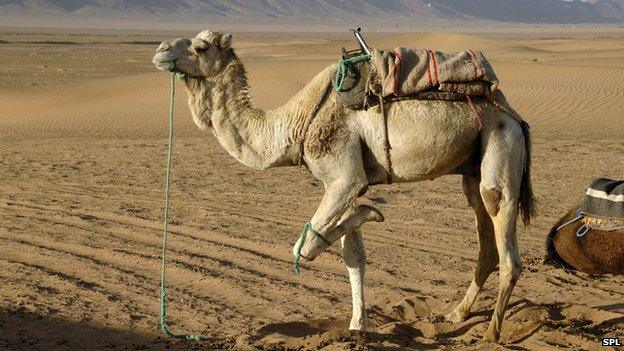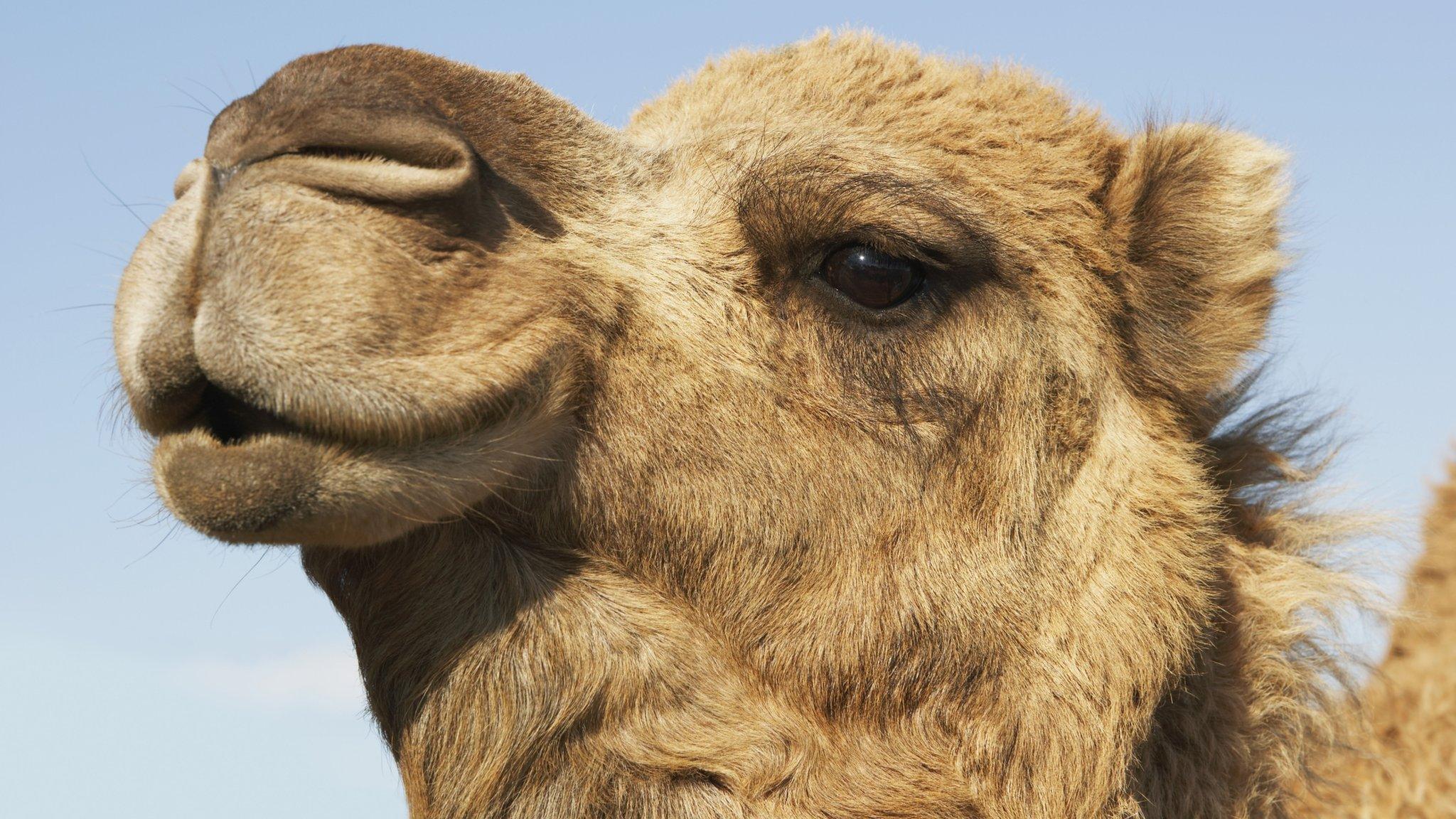Camel infection 'led to Mers death'
- Published

Doctors believe they have found the first evidence that a new deadly virus has been transmitted from a camel to people.
The animals have been suspected as the source of Middle East respiratory syndrome (Mers).
A study published in the New England Journal of Medicine has found "identical" Mers viruses in camels and their owner.
The 44-year-old man, from Saudi Arabia, died of the infection.
There have been 681 cases of Mers, leading to 204 deaths, since the virus was first detected in June 2012.
The precise source of the infection has been unclear.
The man, who was treated at King Abdulaziz University Hospital in Jeddah, kept nine camels that had been sick shortly before he was infected.
Medical notes show he had treated his camels with nose drops.
An analysis of viral samples taken from both the camels and the patient showed that "the full genome sequence from the two isolates was identical", the report said.
It added: "These data suggest that this fatal case of human Middle East respiratory syndrome coronavirus infection was transmitted through close contact with an infected camel."
Jonathan Ball, a professor of virology at Nottingham University, told the BBC: "All the evidence points to camels being the culprit. This is probably the first time the virus sequence is identical and suggests this is a case of transmission.
.jpg)
"One of the things that hasn't been resolved is whether or not it is respiratory transmission. The man was administering nose drops to the camel, but there are also reasonable amounts of virus in camel milk."
Prof Paul Kellam, of the Wellcome Trust Sanger Institute in Cambridge, told the BBC: "This work further supports camels as a source for Middle East respiratory syndrome coronavirus and is the first to isolate the virus from a camel.
"However, as with other studies recently published, the camels were sampled after the human patient was diagnosed, making direction of infection difficult to prove.
"To be definitive, camel herds will need to be prospectively followed and showed to be infected with Middle East respiratory syndrome coronavirus and infectious prior to a documented transmission event to a human."
- Published13 May 2014

- Published11 November 2013

- Published9 August 2013
